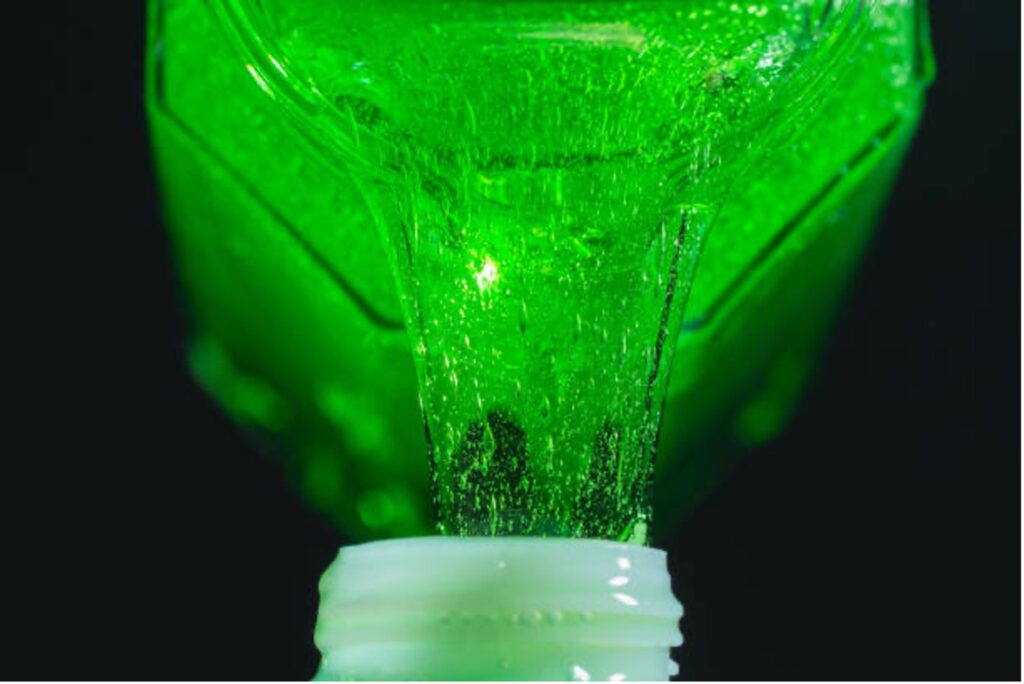Bioproduction platform for microalgal biopolymers
The challenge
Considering that plastic waste can take anywhere from 20 to 500 years to decompose, there is an inherent need for more sustainable materials. Biodegradable plastics (commonly known as bioplastics) are an alternative that can be produced from renewable feedstocks. First-generation biopolymers were produced from plant-based feedstocks, requiring arable land, nutrients, and freshwater. Hence, they could compete with forecasted demands for food supplies.
To address this, the use of photosynthetic microalgae and bacteria has attracted increasing attention for bioplastic production, as these microorganisms grow easily, quickly, and flexibly.
However, the commercialisation of bioplastic production on a large scale is hindered by some challenges, including the lack of knowledge on crucial aspects of the manufacturing process, such as the identity of the most suitable microbes (biomass), the type of polymers to be extracted (biomaterial), and the optimisation of the cultivation system and extraction methods (bioprocessing).
Our response
We’re evaluating whether microalgal biopolymer production is technically feasible for bioplastic manufacturing to support low-carbon future industries.
We’re looking at developing an innovative and sustainable bioproduction platform for producing microalgal biopolymers from various low-cost resources like wastewater, mine water, or saline/brackish water. This includes the potential for efficiently coupling microalgal biomass and bioplastic production with wastewater treatment processes and bioremediation.
These integrated microalgae-based systems will be assessed as strategies to satisfy the process design priorities to achieve full commercial competitiveness.
Various feedstocks for microalgae cultivation, such as wastewater, mine water, saline/brackish water, and industrial exhaust gases (e.g., carbon dioxide) will be assessed for the optimum bioprocess selection while considering low-carbon and resource-recovery principles. In addition, the project will explore multiple routes of biopolymer production, including the extraction and transformation of intracellular/extracellular products from microalgae, and/or utilising microalgae as the catalyst for polyhydroxyalkanoates (PHA)-producing bacteria through designer microbiomes. Lastly, the integration of microalgal biomass manufacturing (used as feedstock) with other processes for PHA production, such as the bacterial (dark) production of PHAs or via electrofermentation will be evaluated.
Impact
This project will deliver microalgal cultures and/or consortia capable of using alternative low-cost or waste feedstocks for bioplastic production, as well as innovative, high-efficiency photobioreactor systems to produce microalgal biopolymers.
The sustainable bioproduction platform for microalgal biopolymers developed through this project aims to deliver economic, environmental, social, and scientific value. The platform will enable low-carbon, bio-based future plastics industries. This will be accomplished by a combined design of bioprospected microalgal strains and/or consortia, and an innovative cultivation system that optimises the growth of biopolymer-producing microalgae and subsequent harvesting of biomass and derived compounds. Such optimisation will be aligned with rigorous process models and a techno-economic framework to produce commercially viable products.

Bioproduction platform for microalgal biopolymers.

